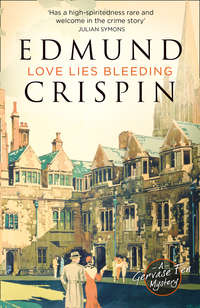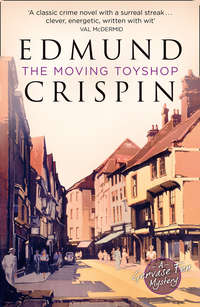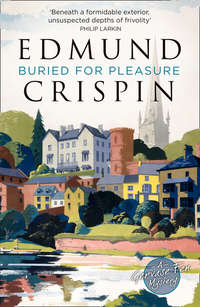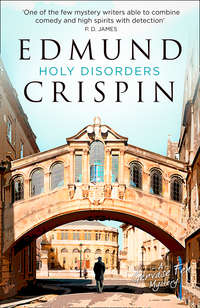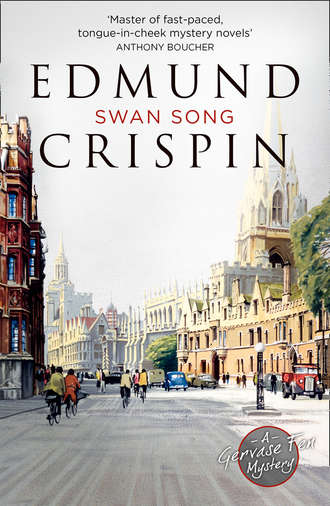
Полная версия
Swan Song
‘Well, I’m for the boozer,’ said the oboist. ‘Coming, anyone?’
The constable saluted Sir Richard Freeman. He saluted Fen, more dubiously. He did not salute Adam at all. They went inside.
The stage door led into a small stone vestibule, from which flights of stairs ran up and down. There was a kind of cavity, furnished with a few elementary comforts, where in the daytime the stage door keeper lived, moved, and had his being, but this was at present empty. They pushed through a padded swing-door into the wings. Semi-darkness greeted them. Moving cautiously among ropes, floodlamps, and scenery poised precariously against the walls, they came within earshot, and soon within sight, of some kind of altercation which was in progress on the stage.
Beneath a single working lamp, high up among the battens, stood Elizabeth and an Inspector of police, both of them very angry indeed. Dimly in the background there were other forms hovering, like wraiths on the threshold of limbo, but these two appeared to be the centre of such activity as was going forward at the moment. The Inspector of police was small, wizened, and malevolent in appearance; and Elizabeth was standing with her hands on her hips, glowering at him.
‘You are an intolerable, pompous ass,’ she was informing him in measured, judicial tones. ‘A jack-in-office. A nincompoop. A giddy-brained pigeon.’
‘Listen to me,’ said the Inspector with theatrical restraint. ‘Just you listen to me. I’ve had quite enough of you. You’ve no right to be here, young woman. And if you don’t get out – now: instantly – I shall charge you with obstructing me in the performance of my duties.’
‘I’d like to see you try,’ Elizabeth replied, in a voice of such intense malignancy that even Fen was startled. She swung round to face the newcomers. ‘And if you think—’ She broke off, and her face suddenly brightened. ‘Adam!’
‘Darling, are you being a nuisance?’ Adam asked. ‘I want you to meet Sir Richard Freeman, the Chief Constable, and Gervase Fen. Elizabeth, my wife.’
‘Pleasure,’ said Sir Richard with manly gruffness. ‘It’s all right, Mudge,’ he added to the enraged Inspector.
‘As you say, sir,’ Mudge answered. ‘As you say, of course. As you say.’ He stood back, muttering waspishly.
‘Well, well.’ Fen beamed at Elizabeth like an ogre about to gobble up a small boy. ‘I am pleased. I could tell you some things about Adam,’ he went on with great amiability.
‘You’ve only rescued me just in time.’ Elizabeth’s voice still held a trace of peevishness. ‘Adam darling, you’re terribly late.’
‘Yes, dear,’ said Adam soothingly. ‘I’m sorry.’
‘Now,’ said Sir Richard, who was plainly not much interested by this interchange, ‘let’s have a few facts, Mudge. Is this where it happened?’
He gazed about him. The light from the stage faintly illuminated the front rows of the stalls. Half-painted flats projected from the wings. Backstage, the electrician’s gallery was visible. There was a lot of litter and a lot of dust. There were half-effaced chalk marks scrawled on the floor by the producer, to assist positioning at rehearsals. In the orchestra-pit, a tangle of brass stands could be seen. But there was nothing, apart from a good deal of rope, to suggest suicide or violence.
‘No, sir,’ Mudge informed his superior with perhaps more testiness than was altogether wise. ‘Not here. In the dressing-room.’
‘Well, take us there, then,’ said Sir Richard. ‘It’s absurd to stand about like a set of characters in a melodrama.’
Mudge sighed, and pronounced, as though it were a rune, the word ‘Furbelow’. The stage door keeper materialized from among the peripheral wraiths, and stood blinking at them. ‘Good morning, Mr Langley,’ he said uncertainly.
‘Furbelow, you’d better come with us.’ Mudge was peremptory. ‘Sir Richard will want to hear what you have to say.’
‘Who’s this?’ Sir Richard demanded with distaste.
‘The stage door keeper, sir. His evidence is important.’
‘Indeed?’ said Sir Richard, like one confronted too suddenly with a freak of nature. ‘Important. I see.’
‘Come on, come on,’ said Fen impatiently. ‘Or we shall never get started.’
They made their way off the stage. Adam wanted to take the lift, but it appeared that the aspen and decrepit Furbelow went in fear of lifts. The machinery broke, he explained, and one was precipitated with violence to the ground … In any case, this particular lift was too small to take all of them, so they walked up, encouraged by some remarks from the Chief Constable on the subject of muscular development – the Inspector first, Sir Richard following, Fen at his heels, then Adam and Elizabeth, and finally Furbelow. Having arrived at the second floor, they made their way in single file round an inconveniently placed iron ladder which led to the roof, and at last came to a door bearing a card with the inscription EDWIN SHORTHOUSE on it. The Inspector halted.
‘It’s here,’ he said.
‘Well, well,’ said Sir Richard, annoyed at the redundancy of this statement. ‘Let’s have a look at it. The – ah – he’s been moved, I suppose?’
‘Oh, yes, sir.’ Mudge was inserting a key into the lock. ‘In fact the post mortem ought to be over by now. I’m expecting Rashmole back here at any time.’
‘Have you got in touch with the brother?’
Mudge paused in his labours, to everyone’s great annoyance; the corridor was undeniably draughty. ‘I wired him earlier this morning, sir,’ he said. ‘And the reply came a few minutes before you arrived just now.’ He hesitated. ‘Rather an odd reply. Unnatural, to my thinking.’
‘Well, what was it?’
Mudge abandoned the door and groped in his pockets; a telegram was produced; they passed it from hand to hand; it ran:
Конец ознакомительного фрагмента.
Текст предоставлен ООО «ЛитРес».
Прочитайте эту книгу целиком, купив полную легальную версию на ЛитРес.
Безопасно оплатить книгу можно банковской картой Visa, MasterCard, Maestro, со счета мобильного телефона, с платежного терминала, в салоне МТС или Связной, через PayPal, WebMoney, Яндекс.Деньги, QIWI Кошелек, бонусными картами или другим удобным Вам способом.




